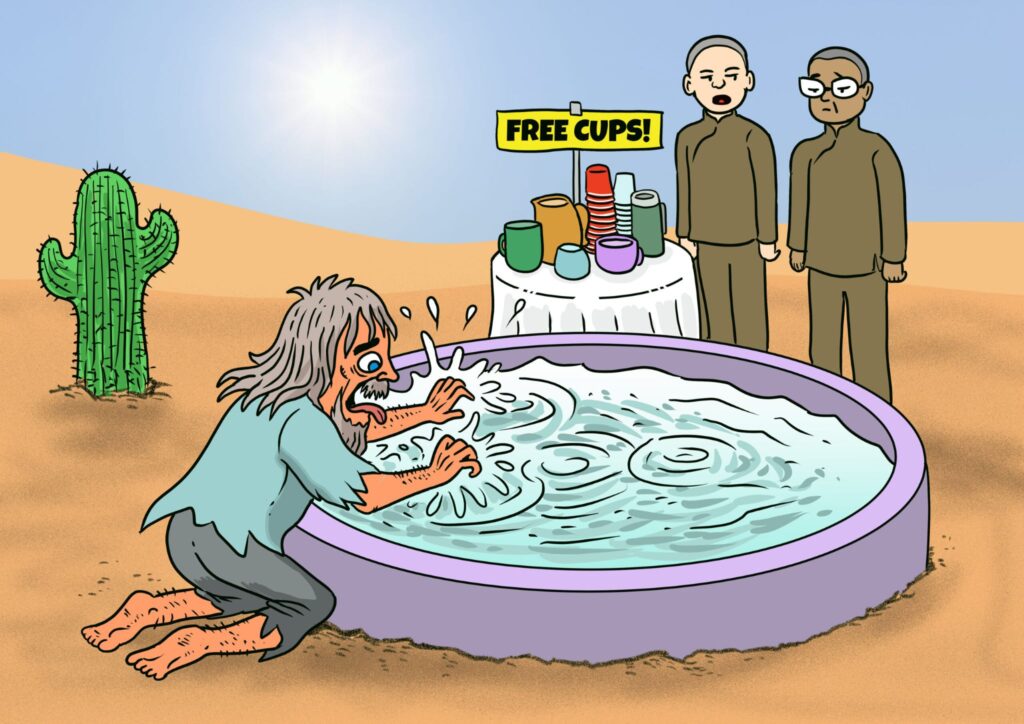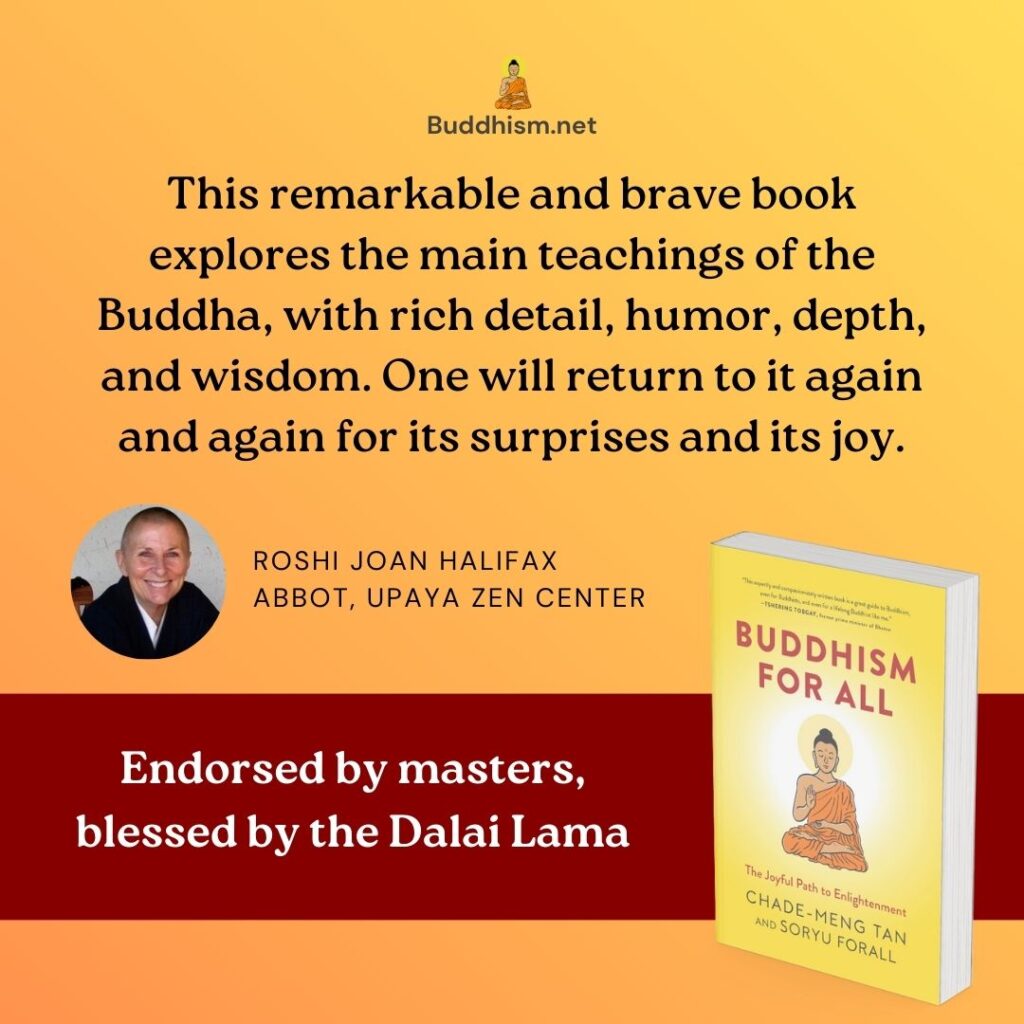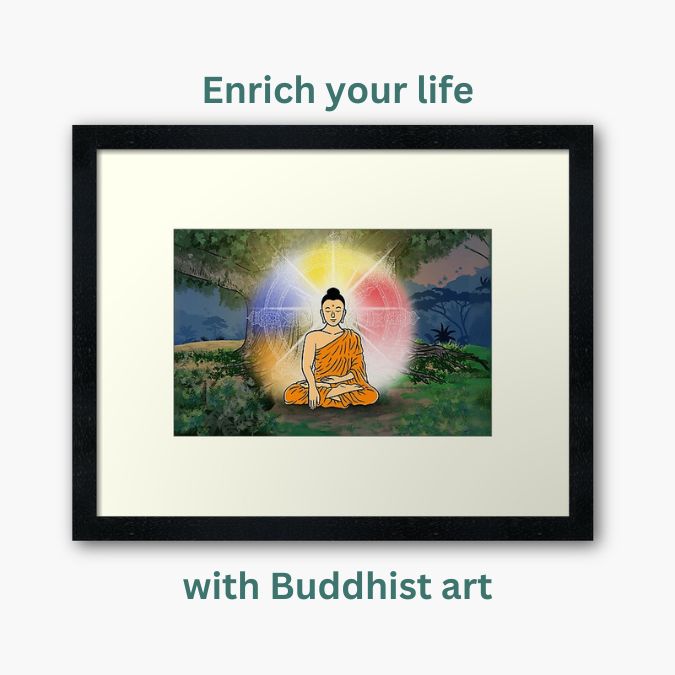
“Which one of us is going to tell him?”
The Buddha taught that the five aggregates subject to grasping are suffering. What does that mean? One way to think of it is like trying to grab hold of water with your hands to drink it. No matter how hard you try grabbing the water, you cannot hold it, it will flow away. That desperation to grab hold of water is the grasping, and the suffering.
In the same way, we want our experiences to be a certain way. We want our own form (body) to be a certain way: attractive, healthy and fit, and all. We want to have certain sensations. We want to perceive certain things. We want to have certain emotions, or some particular ways to see ourselves. We want to live in eternal bliss. In addition to the wanting, there is the not wanting: we do not want certain bodily configurations, or certain sensations, or to perceive certain things. Unfortunately, we do not have full sovereignty over the five aggregates, we cannot always make them into what we want. In that sense, the five aggregates are unreliable.
That desperation of wanting, and not wanting, that is the grasping. To grasp onto something unreliable is suffering.
There is a solution. In the case of holding water, the solution begins with developing an understanding into the nature of water, the nature of grabbing, and the nature of hands. With that insight, you will find that grabbing it does no good for you at all. You abandon grabbing. Instead, you find a solution based on your insight that goes beyond grabbing, which is to cup your hands. That way, you can hold and drink the water skillfully.
In the same way, the solution to suffering begins with developing an understanding into the nature of suffering, the nature of grasping, and the nature of the mind. With that insight, you will find that grasping does no good for you at all. You abandon grasping. Instead, you will find a more skillful way to relate to the aggregates that goes beyond grasping.
Activities
Featured image by Colin Goh.


